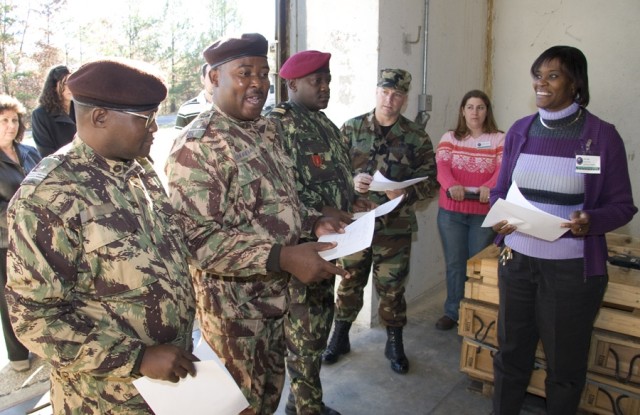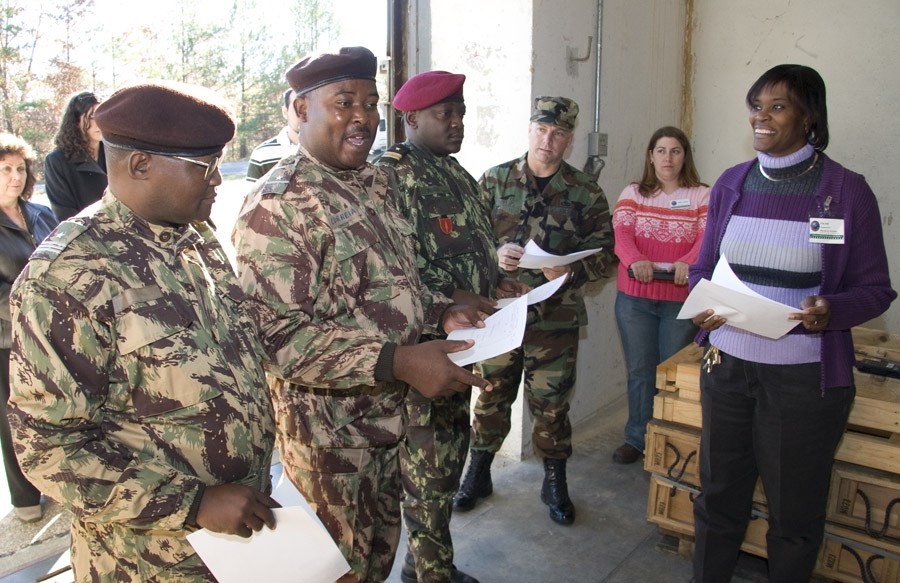
Officers from the Mozambique Army visited Anniston Army Depot, Ala., Wednesday to tour operations at the Anniston Defense Munitions Center, a tenant activity there.
Munitions accidents in the southeastern Africa country have officials there wanting to learn more about safety and operating procedures at other munitions storage and disposal sites, said Col. Daniel Melaco Anastacio, chief of operations for the Mozambique Army.
A munitions explosion occurred there in March near the capital city of Maputo, killing more than 100 people.
"It is important we come here and learn from the U.S. Army and their experiences," said Anastacio. "We'd like to learn from you so when the time comes for our munitions to be destroyed, we will know how you do it."
Mozambique became an independent republic in 1975, and the munitions have been stored there ever since. Anastacio said his country has little experience in destroying ammunitions and asked ADMC Commander Lt. Col. Garry McClendon how to do it safely.
Anniston munitions personnel showed the visiting officers a part of their daily demolition operations, destroying 108 Dragon missiles over three detonated shots. The munitions, along with M15 mines, are buried nearly 15 feet into the dirt and use 150 feet of detonation cord to blow up the missiles. Visitors watched close by from a bunker equipped with video surveillance.
With each ADMC operation demonstration, the Mozambique officers were briefed on safety procedures.
Each ADMC group that works with munitions in the depot's Ammunition Limited Area conducts a three-minute safety meeting at the start of every work day.
"We are not issue-free," said McClendon. "I have the responsibility to emphasize safety, and by having another country to come here, it just raises our safety awareness even more."
Anastacio said he wants to improve security and safety at the ammunition depots in Mozambique. Encroachment has put the munitions depot in Maputo inside a highly populated area, and another accidental explosion could be disastrous for hundreds more who live and work there.
At Anniston, workers and visitors in the limited area face many restrictions. No cellular phones or two-way communication devices are allowed in; neither are lighters and other potentially destructive devices. And of course, plenty of security guards are there to enforce all these rules.
Workers are not allowed to drive their personal vehicles inside the gate of the ALA where their offices and work areas are located. They are bused in to work from a parking lot outside the gate to the limited area.
Aside from the safety and security precautions taken by ADMC and the operations at the demolition pit, the visitors were briefed on the center's shipping, storage, inventory, and maintenance processes.
"It's an honor to have these visitors here," said McClendon.

Social Sharing